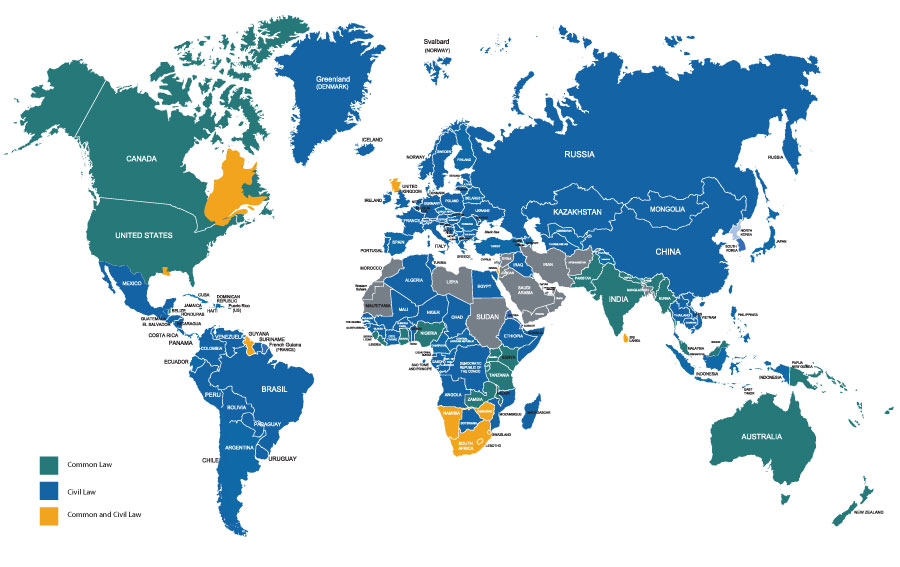Lesson 4: Transnational IP
Are IP Laws the Same Around the World?
All IP laws are territorially defined and national in scope, therefore, do not assume that the laws in one country are identical to the laws in another. In some jurisdictions, the various forms of IP laws are all codified by statute. In other jurisdictions, some IP laws are codified while others are determined solely by decisions of the courts (such as in the United States and British Commonwealth jurisdictions).
Our focus in this course will be primarily on the IP laws of common law countries, namely those countries that follow the British legal tradition, such as Australia, Canada, the United Kingdom and the United States, among others.
The other main legal tradition (the civil law tradition that predominates in Continental Europe and Central and South America, among other regions) recognizes the same or similar forms of IP but may not treat them precisely the same way.
While legal traditions and legal systems differ from country to country, when it comes to IP, the underlying policies and overarching legal frameworks are similar.
However, the devil is often in the details, so be careful not to assume that the specifics of the IP laws and practices that you are familiar with necessarily operate the same way around the world.
Legal Systems of the World

| France | Mexico |
|---|---|
| The copyright duration is life of the author plus 70 years after the author’s death. | The copyright duration is life of the author plus 100 years after the author’s death. |